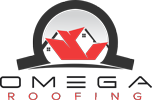Indoor air quality (IAQ) plays a critical role in maintaining a healthy and comfortable living environment. Pollutants inside homes can significantly impact health and well-being, often more than outdoor air pollution. Understanding the causes of poor IAQ, its effects, and actionable solutions is vital for every homeowner.
What is Indoor Air Quality?
Indoor air quality refers to the condition of the air within and around homes and other buildings, especially as it relates to the health and comfort of occupants. Factors influencing IAQ range from building materials to everyday activities. Common indoor pollutants include:
- Mold and mildew
- Radon
- Volatile organic compounds (VOCs) from cleaning products and paints
- Asbestos and lead particles
- Second-hand smoke
- Carbon monoxide and nitrogen dioxide from faulty appliances
Poor IAQ arises from issues like excess moisture, deteriorating materials, or outdated systems. Homeowners must remain vigilant to maintain a safe environment.
Health Impacts of Poor Indoor Air Quality
Indoor air pollutants can accumulate to levels up to five times higher than outdoor air, according to the EPA. These pollutants can cause various health problems, such as:
- Allergies, headaches, and respiratory irritation
- Exacerbation of asthma and chronic respiratory conditions
- Fatigue and skin irritation
- Severe outcomes like carbon monoxide poisoning or cancer with prolonged exposure
Addressing IAQ concerns is especially critical for vulnerable populations, including children, the elderly, and individuals with pre-existing conditions.
How Roof Maintenance Affects Indoor Air Quality
Your roof plays an essential role in controlling IAQ. Damaged, outdated, or poorly installed roofing systems can allow moisture, mold, and pollutants to infiltrate your home. Proper roof maintenance helps mitigate these risks by ensuring:
- Ventilation Efficiency: A well-maintained roof allows for adequate airflow, reducing moisture buildup and preventing mold.
- Leak Prevention: Addressing leaks minimizes water damage that could lead to mold and structural decay.
- Energy Efficiency: Upgraded roofs improve insulation, regulating indoor temperatures and reducing pollutants from HVAC overuse.
Working with a professional roofing contractor ensures your roof contributes positively to your home’s overall air quality.
Omega Roofing’s Commitment to Quality
Located in Jackson, TN, Omega Roofing, LLC emphasizes the importance of maintaining high standards in roofing craftsmanship and community care. As an Atlas Pro-certified company, Omega Roofing combines expertise and state-of-the-art materials to deliver solutions that promote safety, efficiency, and enhanced indoor air quality for homeowners.
Steps to Improve Indoor Air Quality
- Maintain Your Roof and Attic
Regular inspections and timely repairs prevent moisture intrusion and ensure proper ventilation. - Replace Outdated Materials
Update old roofing materials with modern, sustainable options to reduce harmful emissions and enhance durability. - Invest in High-Efficiency Filters
Use HEPA filters in HVAC systems to trap airborne particles and allergens effectively. - Control Humidity Levels
Use dehumidifiers to keep indoor humidity between 30–50%, reducing the risk of mold growth. - Ventilate Properly
Install exhaust fans in areas like bathrooms and kitchens to manage moisture and improve air circulation.
Innovations in IAQ Improvement
Recent advancements in technology offer promising solutions to IAQ concerns:
- Smart Sensors: Monitor air quality in real time and provide alerts for pollutant levels.
- Eco-Friendly Roofing Materials: Low-VOC shingles and recyclable roofing materials help minimize emissions.
- Integrated Ventilation Systems: Automated systems regulate airflow based on IAQ data, maintaining optimal conditions.
Frequently Asked Questions
Why is indoor air quality worse than outdoor air quality?
Indoor air is often trapped and recirculated, causing pollutants to accumulate at higher concentrations than in open outdoor spaces.
How can roofing issues affect IAQ?
Leaks, poor ventilation, and outdated materials can allow moisture, mold, and pollutants to infiltrate your home, compromising air quality.
What are simple ways to improve IAQ?
Ensure proper ventilation, control humidity, regularly replace HVAC filters, and maintain your roof and attic.
Can poor IAQ lead to serious health problems?
Yes, prolonged exposure to indoor air pollutants can cause respiratory issues, carbon monoxide poisoning, and even cancer.
How often should IAQ and roofing inspections be conducted?
It is advisable to schedule annual inspections for your roof and indoor air quality, or more frequently if issues arise.
Conclusion
Maintaining optimal indoor air quality is crucial for the health and comfort of your home’s occupants. A well-maintained roof, combined with modern ventilation systems and effective air purification strategies, plays a pivotal role in ensuring clean, breathable air. By partnering with trusted experts like Omega Roofing, LLC, homeowners can achieve peace of mind knowing their living environment is safe, efficient, and healthy.
Read also: Key Factors That Impact the Cost of Roof Replacement

